By
Pitit Lorena is multifaceted. She is currently studying engineering in tropical forest ecology in the local university, is passionate about nature and is in love with her career. She also takes theater classes and enjoys writing songs, singing and dancing. To know her is to admire her self-confidence and determination. To talk to her is to marvel at the conviction she feels for everything she does and her drive to pursue her dreams.
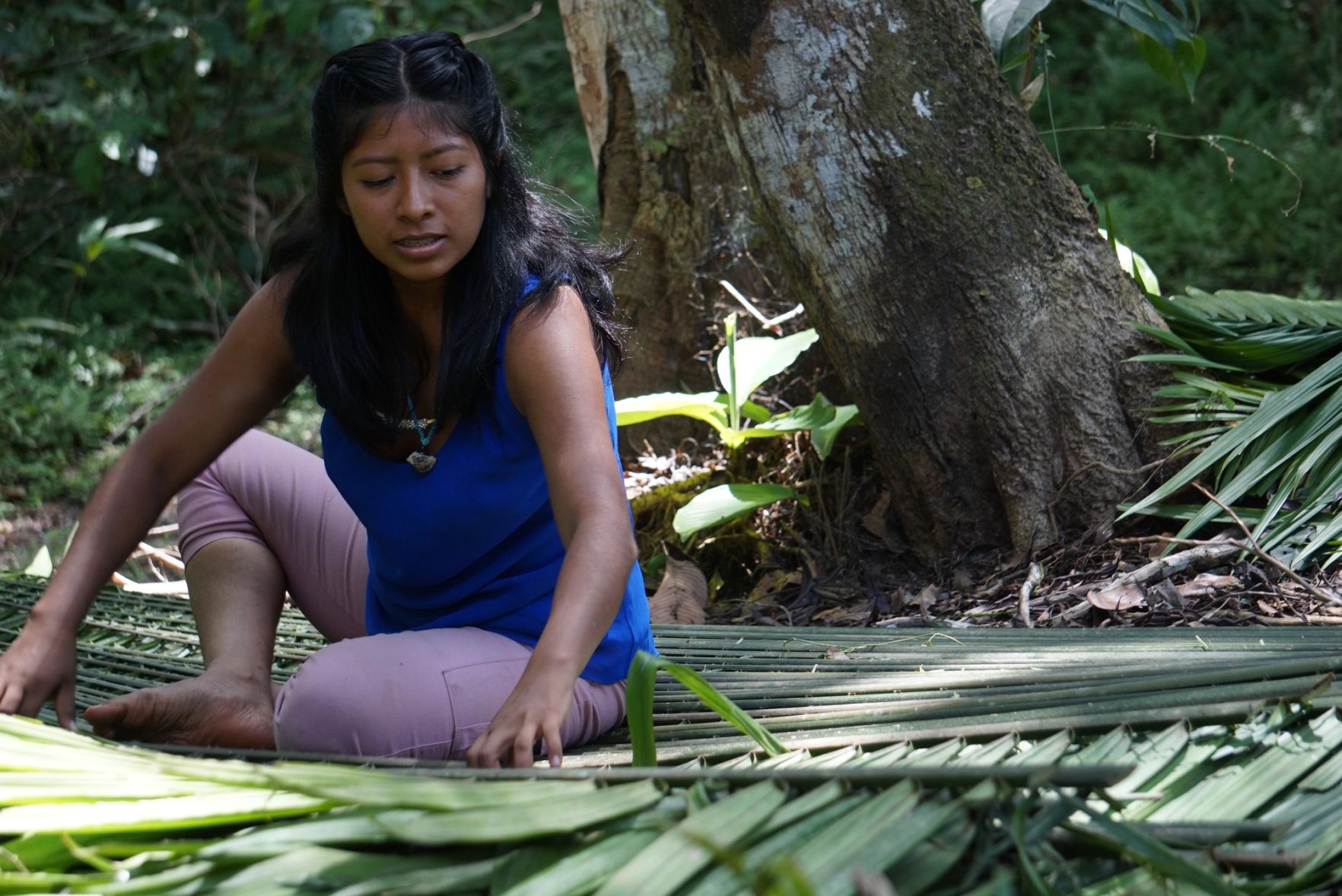
She grew up in the indigenous community of Yutupis, in the district of Río Santiago, province of Condorcanqui in the Amazon region. As a young indigenous woman, Pitit Lorena feels privileged because her father did not prevent her from going to the city to study. She knows that not all women in her community have the same luck, "sometimes parents don't let women study because machismo leads them to prevent their daughters from going out to the city." This thinking, common among parents of indigenous youth, is one of the main reasons why few Amazonian indigenous women access and complete higher education*, which is also reflected in the OEPIAP, an organization to which Pitit belongs, where only 26% of students are women.
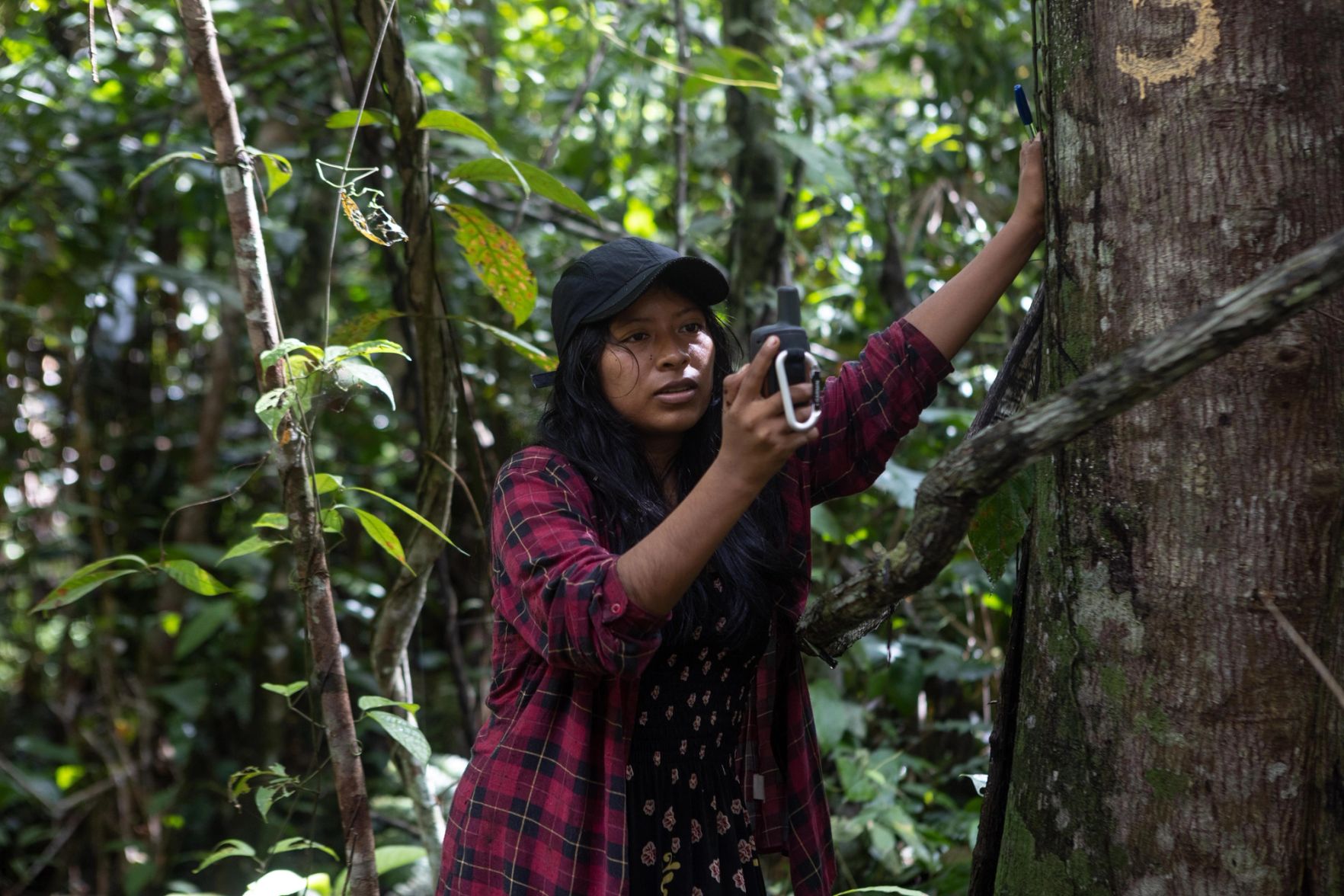
Despite this good fortune, it is not easy for her to know that her father rejected her before she was born when he learned that she would be a woman. For him, having a daughter was synonymous with limiting his expectations about her future, beyond getting pregnant and having a family. However, destiny would give him more daughters than sons and teach him that women can have the same capabilities as men. Eventually, he decided to give his daughters the same educational opportunities as his sons. Thus, he decided to name his fifth daughter Pitit.
The name Pitit evokes wise women with a lot of knowledge about medicinal plants. It also refers to the name of a bird that her father chose with the desire that his daughter would fly high, along with the intention of preserving the tradition of giving an Awajún name, something that has been lost over the years.
"The great women who knew about medicinal plants and handicrafts bore that name, there was a lady who was named Pitit, so in honor of that, my father wanted to give me that name. Also, because nowadays many parents or teenagers sometimes do not want to use names in Awajún or from their culture, because they are ashamed of being discriminated against […] And my father, so that I would not lose that name and so that it would continue to exist today, named me Pitit. […] The other reason is that, as I said, when I was born my dad was disappointed because I wasn't a boy, he thought that I was going to have children at an early age. So, he said 'I'm going to trust her. I'm going to trust her and I'm going to name her Pitit, like the name of the bird, because I know she's going to fly high and far away’."
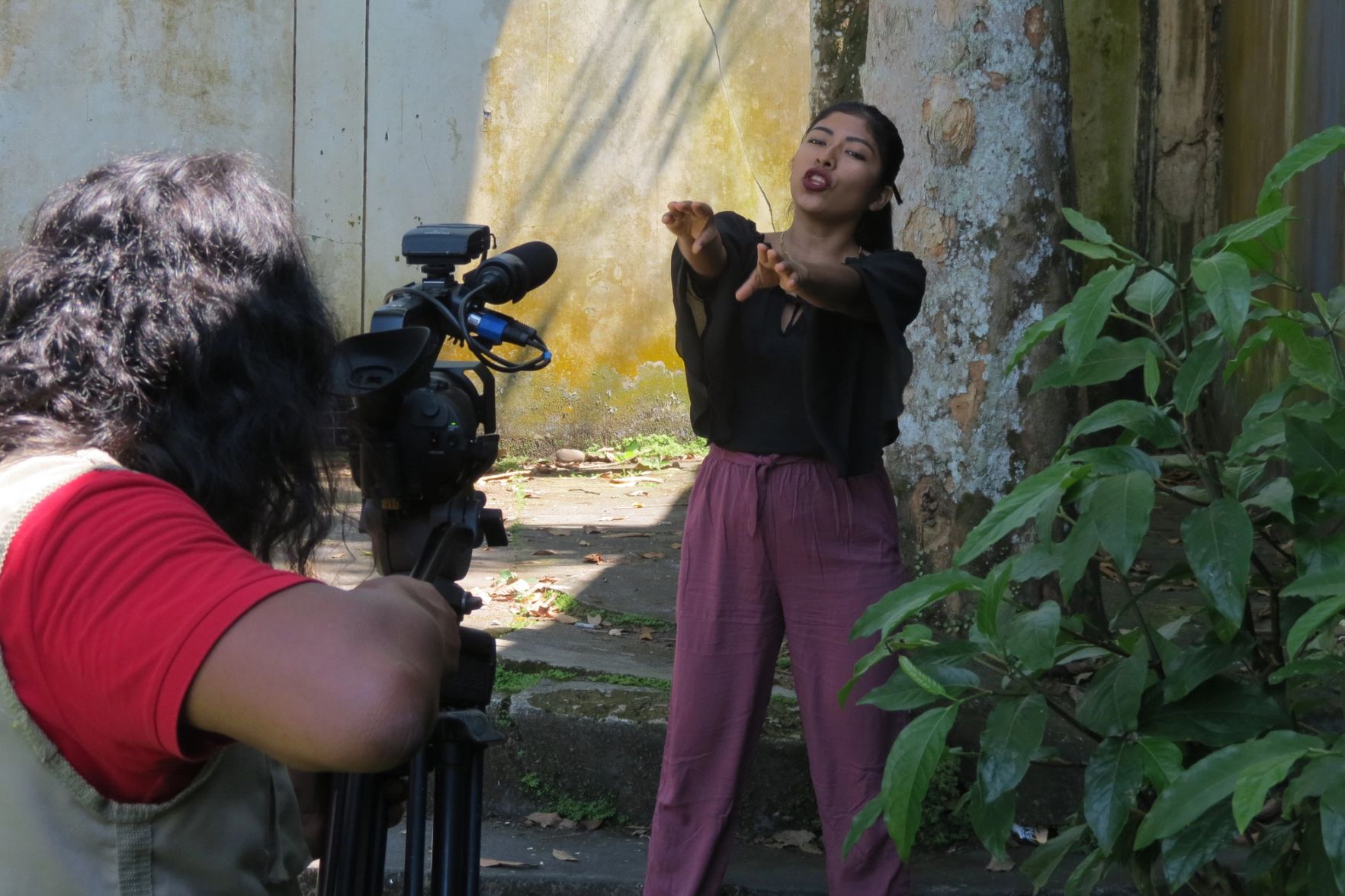
Pitit's relationship with Chaikuni has always been close. Her enthusiasm and eagerness to learn brought her closer to many workshops and activities that have been carried out with the indigenous students of OEPIAP. She has written songs, participated in video clips, women's circles and permaculture workshops. The first time she learned about permaculture was in a permaculture design workshop given by Tierra Martinez. "It was a one-week course, and I only had the opportunity to be there for one day, but that day left me like (amazed)...Then I had to find out more information online when I got home."
Thanks to the agreement signed between Chaikuni and the local university, she is currently part of the Chaikuni team as an intern. This experience has allowed her to complement her knowledge and broaden her view of nature, which has been valuable for her university education.. "It was a complement for me to continue to better understand the knowledge transmitted by each teacher in each course. With that experience it was not so difficult for me to understand some courses because I already had a base that I knew." Something she especially values is the contact with different people and cultures. "When you go out into the field you meet people, you share your experience, you learn from them and also from living with many groups of different ethnicities and customs. It is something that strengthens your knowledge every day more (...) in every community you always learn something new." As part of her internship, she has the opportunity to develop projects such as the one she is currently leading, linked to seeds and timber trees found in our Permaculture Center.
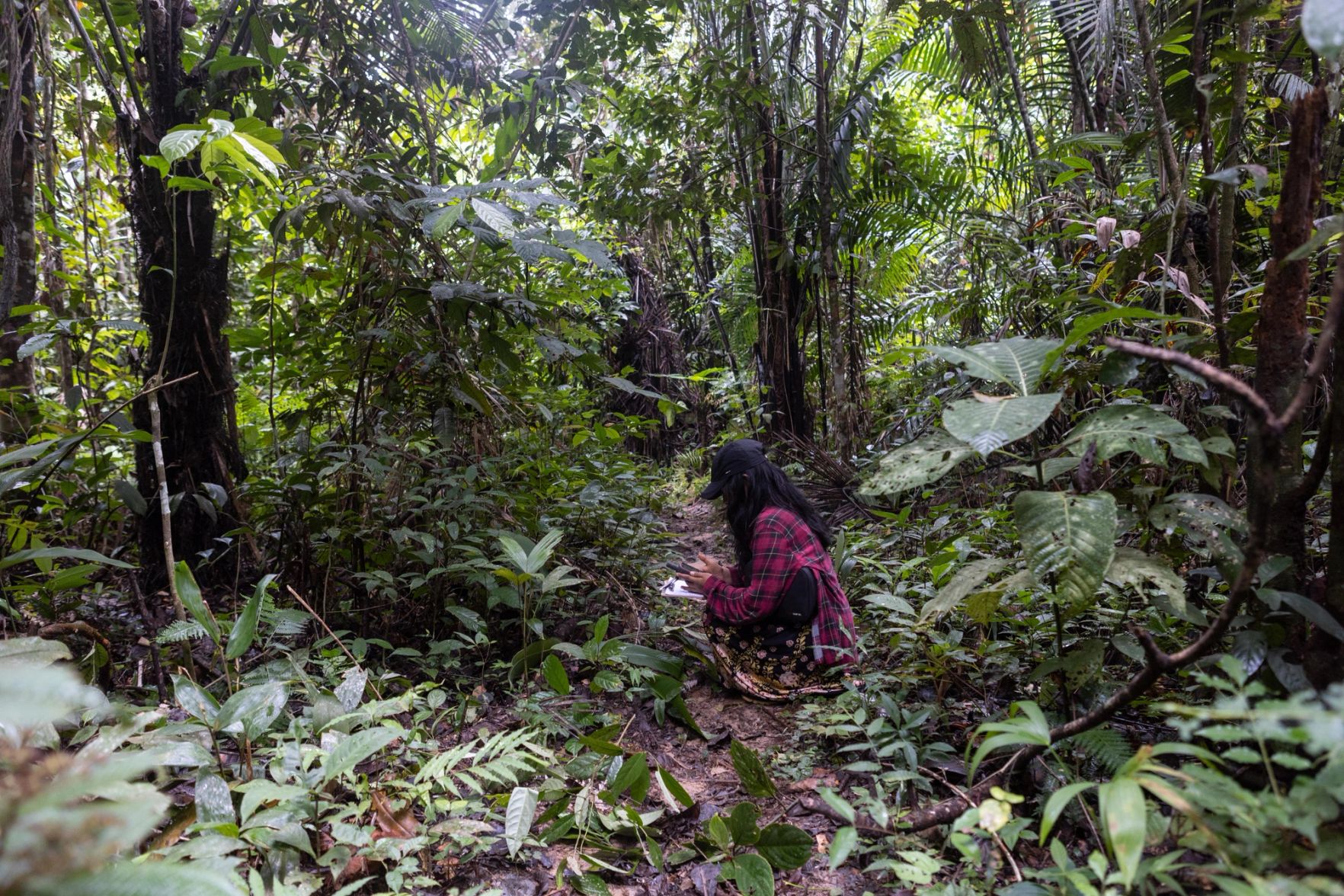
Her strong motivation comes from her desire to help her family and contribute to her community. "I left to become a professional and return to my village to work. To transmit, to share the knowledge I have gained in the process of my studies with the community, to contribute to the community“, where she would like to develop, in the future, an ecological clinic or a permaculture center, "to be able to teach people how we can meet our needs by making better use of ecosystem resources that provide us with food, energy, and shelter, in a sustainable way and without having to affect the environment and then find consequences that, unfortunately, every day are worse because of anthropogenic activities".
Pitit is part of the group of young people with whom we work on the project "Building intercultural leadership for the future of the Amazon". Being a promoter of “buen vivir” (or good living) will allow us to accompany her in the development of projects like what she has in mind, which seek to put the professional knowledge of young indigenous, like Pitit, for the benefit of their communities, strengthening their capacities so that they can promote changes at the political, technical and social levels.
We are confident that Pitit will fly high and achieve her goals.
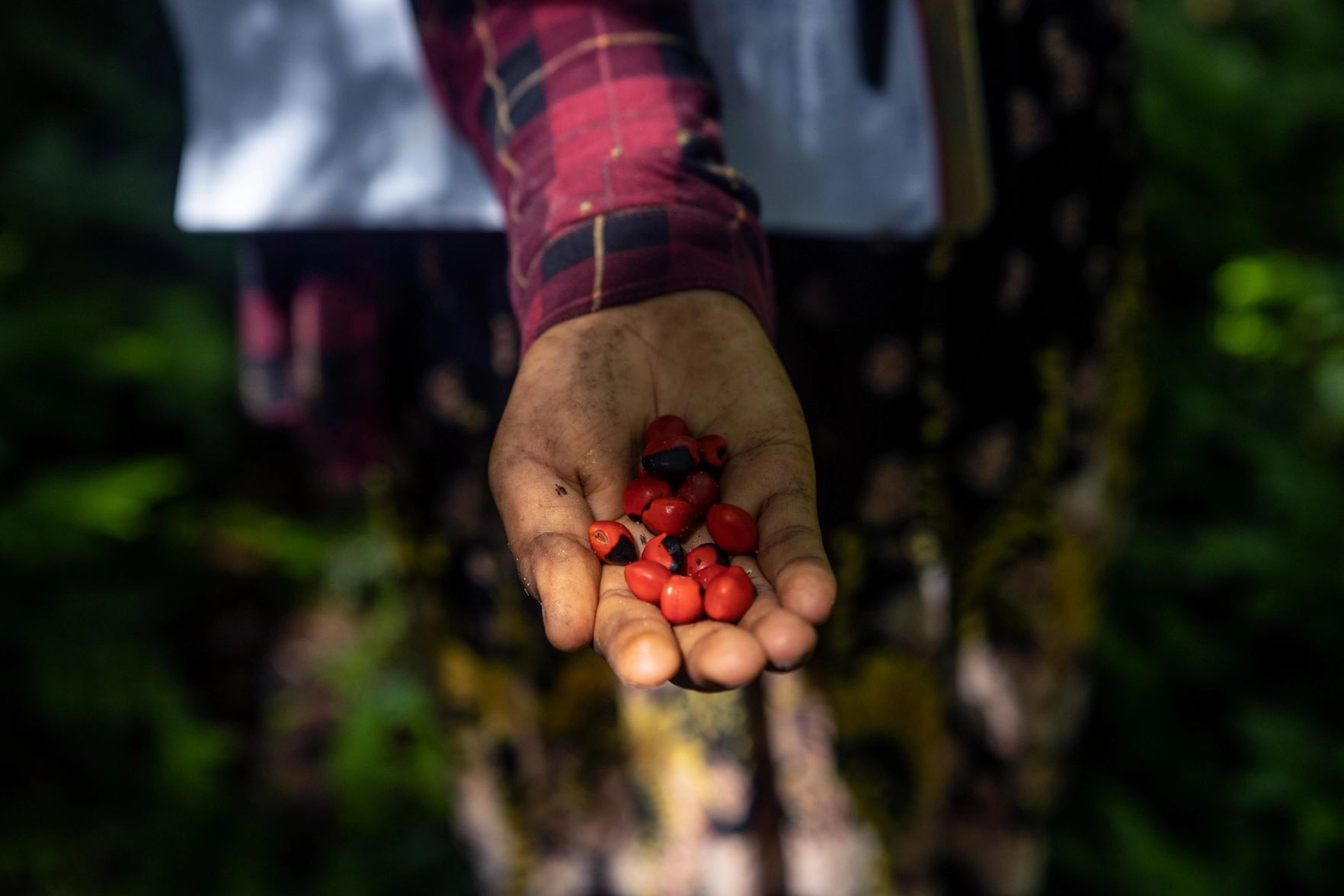
* If we take the 2017 National Census data as a reference, of the total indigenous population that accessed higher education, 43% are women, however the percentage of graduates is reduced to only 25%. These data become even worse when looking at specific cases; in the local university, for example, between 2015 and 2022, 104 women entered but only 3 of them would have finished their studies (Report of the General Directorate of Records and Academic Affairs, 2023)

